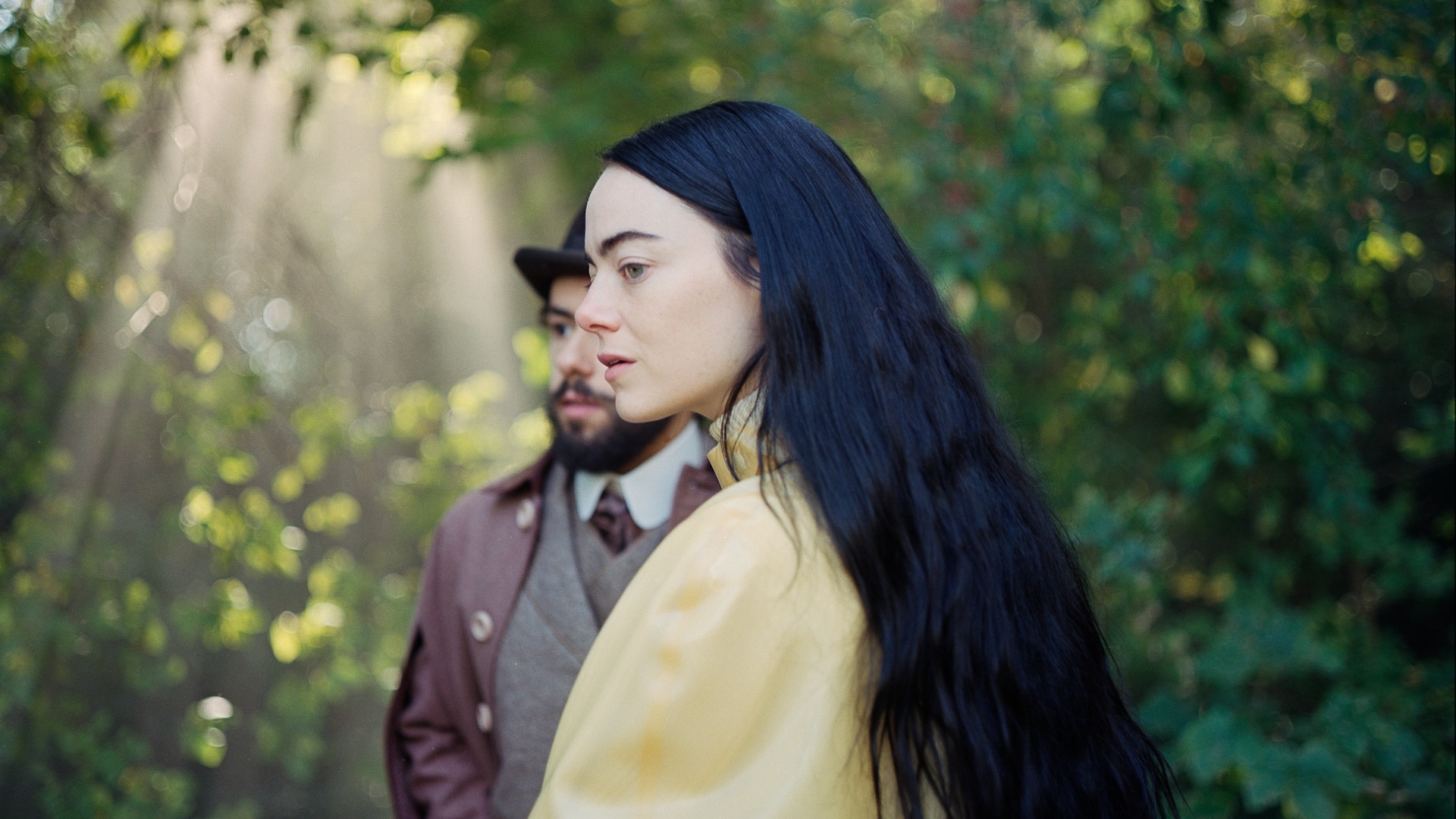GamesRadar+ Verdict
A funny, sad, bawdy, beautiful concoction that will haunt and provoke in equal measure.
Why you can trust GamesRadar+
Yorgos Lanthimos and Emma Stone’s second collaboration mirrors awards darling The Favourite, inasmuch as it’s another feminist period dramedy charting the emancipatory journey of a girl of little means.
But Poor Things isn’t as concerned with the chess-playing and wit women use to survive. A steampunk, gender-flipped Frankenstein of sorts, it explores and challenges the way society dictates and stifles female behaviour. Lanthimos also tackles our own prurience and the seemingly monstrous concept of a woman without shame.
The film opens with Victorian doctor Godwin Baxter (Willem Dafoe) in the midst of medical experimentation, to the admiration of student McCandles (Ramy Youssef). Tony McNamara’s screenplay (based on Alasdair Gray’s 1992 novel) tracks what happens when Baxter invites his acolyte home to help socialise his latest project, a reanimated suicide he names Bella (Stone).
Living in a house teeming with zoological grafts (pigs with goose heads, ducks with dog heads) and a father figure she calls by his diminutive, ‘God’, Bella’s body may be adult but her development is childlike. A naif who must learn walking, speech, and social conditioning from scratch, she’s taught by McCandles not to punch strangers, spit out food she dislikes, or exhibit her body.
But then McCandles’ moral opposite arrives in the form of predatory lawyer Duncan Wedderburn (Mark Ruffalo), who uses Bella’s voracious hunger and naivety to sate his own appetites. Once Bella has used her ‘hairy business’ for sex, she becomes eager to escape the confines of God, prompting a globetrotting journey of self-discovery…
Boasting Lanthimos’ off-kilter trademarks (fish-eye lensing, unconventional framing, switches from rich black-and-white to saturated colour), Poor Things is a riot. McNamara’s (The Favourite, Cruella) screenplay is littered with laughs and quotable dialogue. Jerskin Fendrix’s score is rife with queasy distortion while Holly Waddington’s non-conformist costumes are gorgeously weird and surgical (Bella wears a cape that’s practically prophylactic, her puffed sleeves recalling internal organs).
But, as with The Favourite, selling this heightened world comes down to the performances. Stone aces a cut-glass English accent, as well as the evolution of a woman who goes from being a rapacious consumer of experience (booze, sex, cakes, dancing) to someone who lives on her own terms, sets her own social mores, and determines her place within society. Though the latter tries to subject Bella to the male gaze, she resists via her inability to feel humiliation or shame. She approaches fashion, sex, conscience, and charity all in the same way: whatever works for her.
With a cascade of black hair framing her pale face and her body often exposed, the character could - in the hands of a lesser actor - elicit audience pity, or conjure a disquieting sense of exploitation. But thanks to Stone’s determined jaw, comedic timing, and physical dexterity (her frenzied dancing and drunken tottering are Keaton-level masterful), the joke is always turned on the men who seek to harness Bella.
The patriarchal ciphers she’s up against also entertain. Dafoe – all daddy issues and great balloon-producing burps – is well at home in his role, while Ruffalo brings a sleazy, selfish rage (and fruity, wandering accent) to his usual playful screen presence. Youssef and Jerrod Carmichael are pleasant distractions, but the star of the show (in every way) is always Stone, in a performance that pushes both her, and us, beyond any comfort zone.
Poor Things opens in US cinemas on 8 December and in UK cinemas on 12 January 2024.
More info
| Genre | Drama |
Jane Crowther is a contributing editor to Total Film magazine, having formerly been the longtime Editor, as well as serving as the Editor-in-Chief of the Film Group here at Future Plc, which covers Total Film, SFX, and numerous TV and women's interest brands. Jane is also the vice-chair of The Critics' Circle and a BAFTA member. You'll find Jane on GamesRadar+ exploring the biggest movies in the world and living up to her reputation as one of the most authoritative voices on film in the industry.




